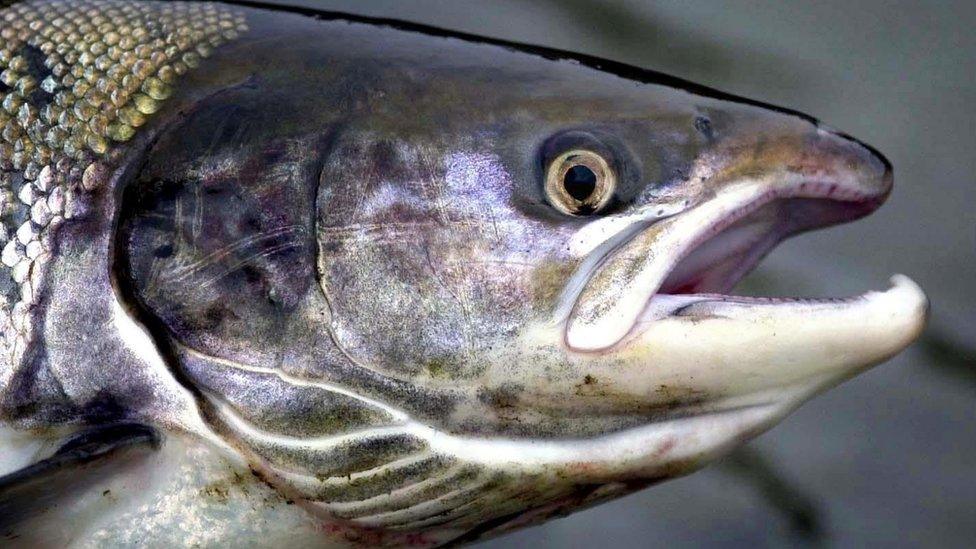Inquiry finds 'insufficient evidence' for salmon farming moratorium
- Published
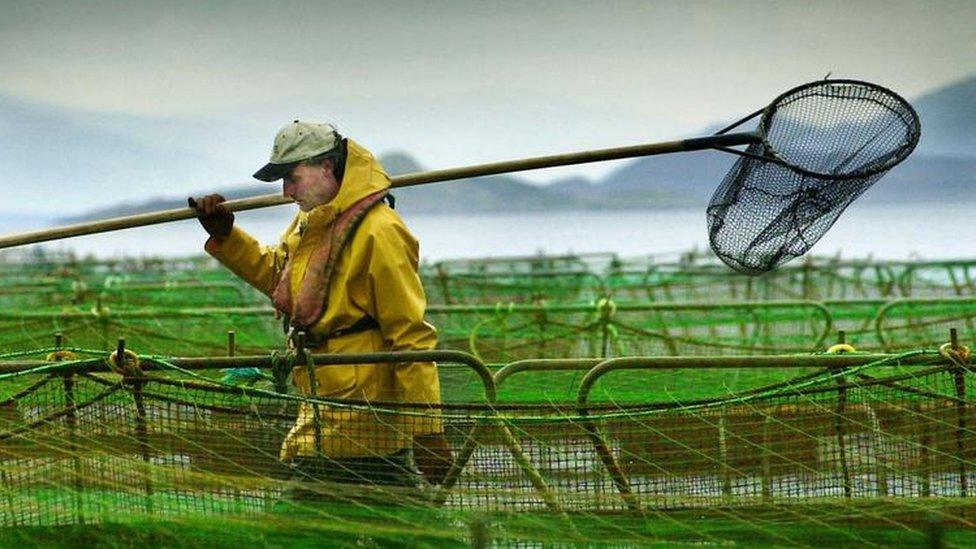
A wide-ranging inquiry into Scottish salmon farming has found "insufficient evidence" to support calls for a moratorium on the industry's expansion.
Concerns had been raised about the impact of the sector on wild salmon populations and the wider environment.
Holyrood's rural economy committee said "light touch" regulation had failed.
Its report said the status quo was "not acceptable" and made 65 recommendations for improvement - but stopped short of backing an overall moratorium.
The industry said it was already taking action to address some of the concerns which have been raised.
'Immediate dialogue'
In their report, MSPs said there should be a "precautionary" approach, with no expansion at sites where fish mortalities - caused by diseases - are classified as significant or high.
It said there should be "immediate dialogue", led by Marine Scotland, to relocate "poorly sited" farms.
Other recommendations include the mandatory and immediate reporting of fish mortalities, disease outbreaks and the use of chemical medicines to treat sea lice infestations.
It also wants new farms to be positioned away from established migratory routes for wild salmon, and says exploring offshore sites in deeper waters should be treated as a high priority for the industry.
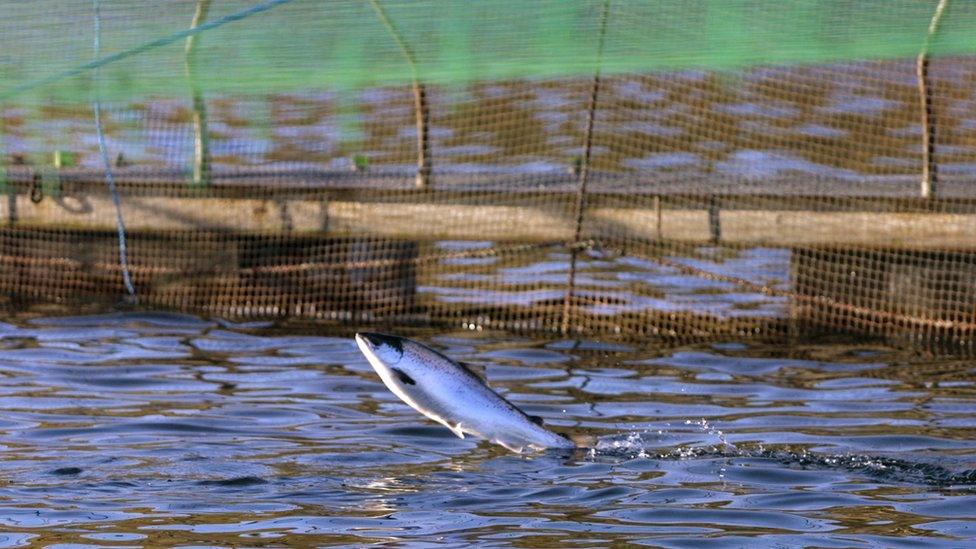
The committee's convener, Edward Mountain MSP, said: "The salmon farming industry offers significant economic and social value to Scotland, providing jobs and investment in rural areas.
"There is a desire within the industry to grow. However, if this is to happen, it is essential that the serious challenges it faces - such as the control of sea lice, lowering fish mortality rates and reducing the sector's impact on the environment - are addressed as a priority."
He said the report had made 65 recommendations on how this should be taken forward.
"If the reputation of Scottish salmon as a premium product is to be maintained, Scotland's salmon farmers must demonstrate responsible and sustainable production methods," he added.
"Importantly, the committee is strongly of the view that the status quo in terms of regulation and enforcement is not acceptable, and that we need to raise the bar in Scotland by setting enhanced and more effective standards."
Salmon producers
The inquiry was launched in June 2017 after Scottish government ministers said they wanted to see "sustainable growth" in the industry.
It heard evidence from salmon producers, environmental groups, scientists and academics.
A separate report for the inquiry, from the Scottish Parliament's environment committee, warned of "irrecoverable damage" from future salmon farming if environmental concerns were not addressed.
It said there had been little activity in tackling environmental problems since 2002.
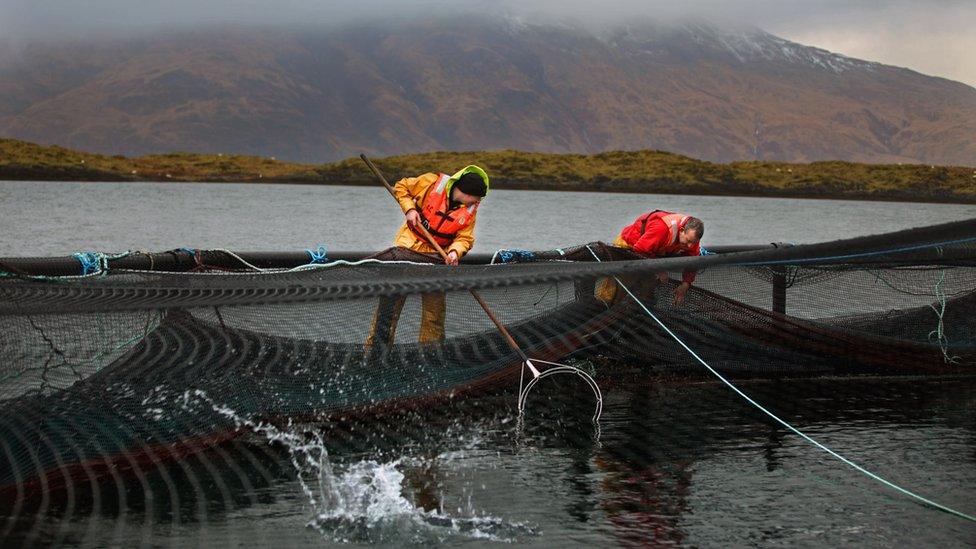
Reacting to the report, rural economy secretary Fergus Ewing said: "While we will carefully consider the committee's recommendations, a number of sustainability issues identified in its report are already being addressed through the Fish Health Framework working groups and the new wild and farmed salmon interactions working group.
"Aquaculture must be delivered and developed sustainably, with appropriate regulatory frameworks that minimise and address environmental impacts.
"But we are also clear that the sector is hugely important to Scotland's economy, particularly in remote and rural communities and it is disappointing that the committee has not fully explored nor analysed that economic and social contribution and benefit more fully."
Lice levels
Julie Hesketh Laird, chief executive of the Scottish Salmon Producers Organisation, said: "We produce the world's most sought-after farmed salmon and are fully aware that, with that, comes the responsibility to ensure world-class fish welfare and environmental standards.
"To that end, the sector is already voluntarily reporting lice levels and is world-leading in publishing survival data on a farm-by-farm basis and we are leading participants in the Scottish government's 10-year Farmed Fish Health Framework, which will promote collaboration between industry, regulators and scientists to underpin long-term improvements in fish health and welfare.
"We intend to continue that work and investment and we welcome involvement in regulatory discussions to help us do that to help ensure future regulation inspires confidence in all those with an interest in salmon farming."
Earlier this month, the environmental regulator Sepa proposed a new set of regulations which limited the use of chemical treatments for sea lice.
It followed a rise in the number of sites failing to meet environmental standards.
One of the biggest concerns is about the impact of parasitic sea lice on wild populations of salmon.
'Little public trust'
Dr Richard Luxmoore, senior nature conservation advisor with the National Trust for Scotland, said: "To some extent, the committee has called for a moratorium because if you look at the second recommendation in the document it is that there should be no expansion in the industry until some of the serious problems have been sorted out.
"The rest of the report goes on to highlight what those problems are so essentially we're in full agreement with the committee.
"Until these problems are sorted out there should be no expansion in the industry."
The conclusion that there was insufficient evidence to support a moratorium was dissented by two committee members, Scottish Labour's Colin Smyth and the Greens' John Finnie.
Mr Finnie told BBC Scotland: "In my view there's plentiful evidence that a moratorium is justified, to give the industry and regulators time to control environmental pollution, high fish death rates and the impact of farm fish disease on wild fish.
"Approving a 'precautionary approach' sounds good but in reality gives control to businesses and a government agency with little public trust."
- Published7 November 2018
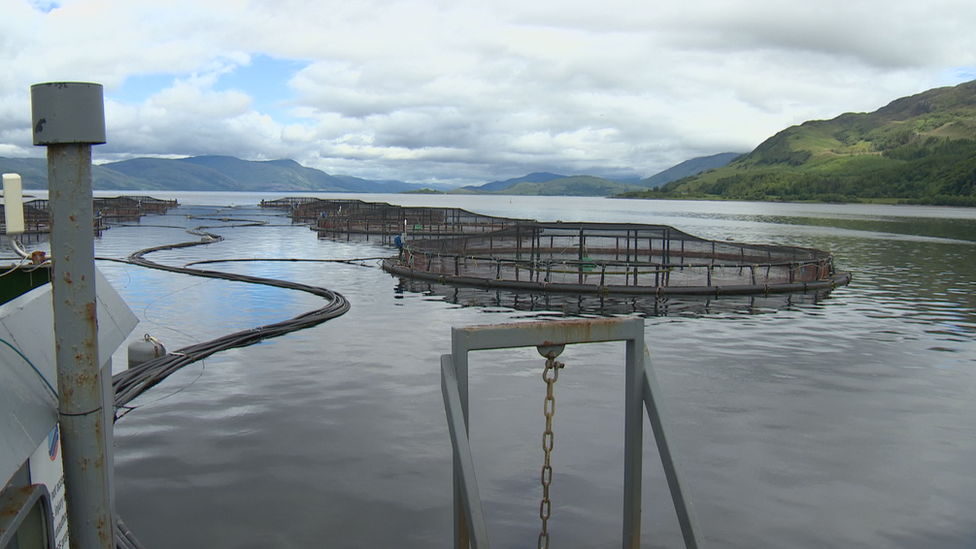
- Published15 October 2018
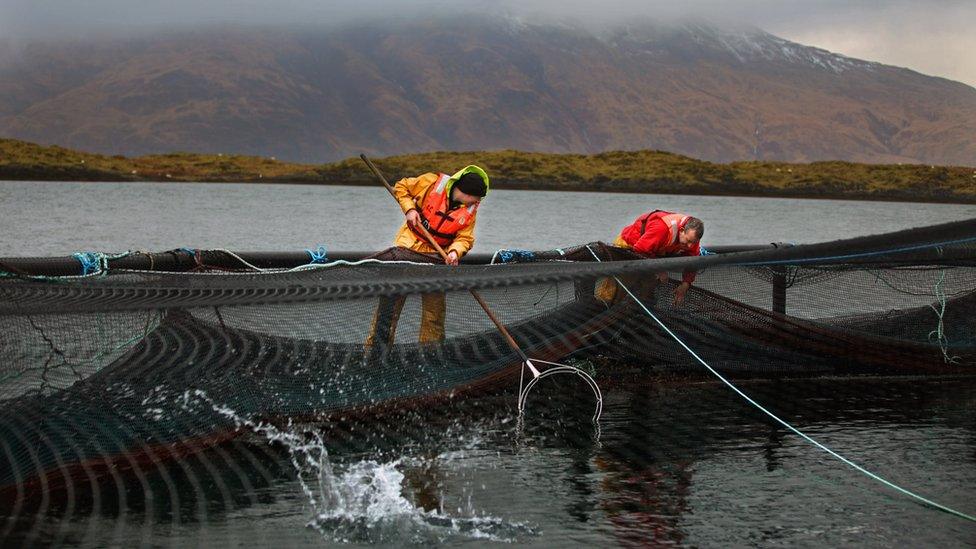
- Published5 October 2018
